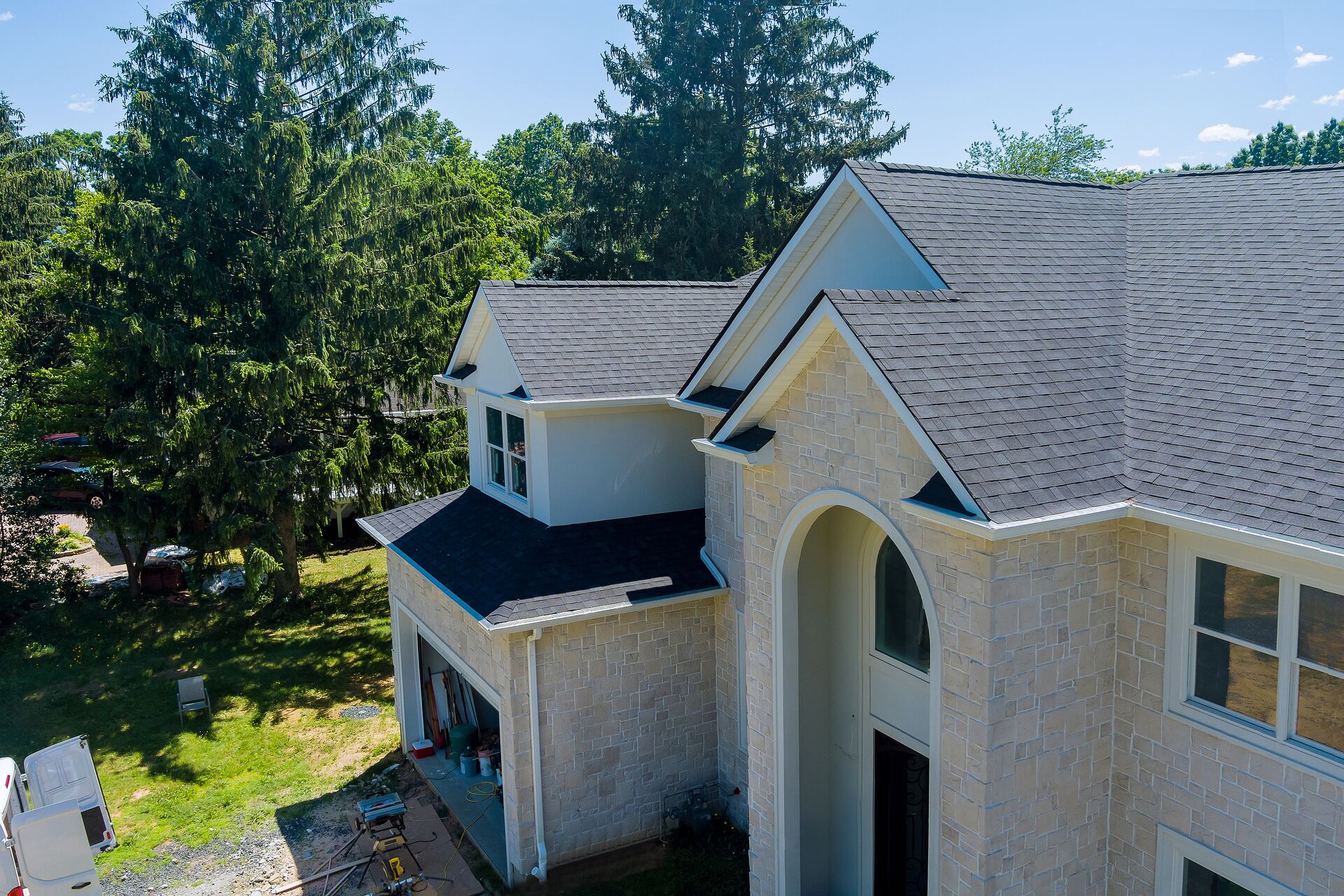Optimizing Your Flat Roof's Lifespan: How Often Should You Apply Coatings?
Flat roofs are a popular choice for many commercial and residential buildings due to their cost-effectiveness and ease of installation. However, their design makes them more vulnerable to the elements, which can lead to quicker wear and tear compared to sloped roofs.
One of the most effective ways to extend the life of a flat roof is through the regular application of roof coatings. These coatings not only enhance the roof’s performance but also provide critical protection against weather damage. The frequency of applying these coatings depends on several factors, including the type of roof material, the local climate, and the current condition of the roof.
The Role of Roof Coatings
Roof coatings serve as a protective barrier for flat roofs, shielding them from the harmful effects of UV rays, reducing heat absorption, and preventing leaks. UV radiation can cause significant damage over time, breaking down roofing materials and leading to cracks and deterioration. By reflecting sunlight, roof coatings help maintain a stable roof temperature, minimizing thermal expansion and contraction, which can lead to structural damage.
Types of Roof Coatings Available
Several types of roof coatings are available, each with distinct advantages. Acrylic coatings are water-based and known for their UV resistance and durability. Silicone coatings offer superior waterproofing capabilities and are particularly effective in areas with heavy rainfall. Polyurethane coatings are highly resistant to impact and are ideal for roofs with high foot traffic or mechanical equipment. Selecting the best roof coating depends on the specific needs of the roof and the environmental conditions it will face.
Factors Influencing Roof Coating Frequency
There are a variety of factors that can impact how often you should have your flat roof professionally coated, including:
Roof Material
The type of material used in the construction of a flat roof significantly influences the frequency of coating applications. EPDM (Ethylene Propylene Diene Monomer) roofs, made from a durable synthetic rubber, typically require less frequent coatings compared to other materials due to their inherent resistance to UV and weathering. TPO (Thermoplastic Olefin) roofs, known for their energy efficiency and reflective properties, may require more frequent recoating, especially in regions with intense sun exposure. Built-up roofs (BUR), which consist of multiple layers of bitumen and reinforcing fabrics, benefit greatly from regular coatings to maintain their protective surface.
Climate Conditions
Climate plays a crucial role in determining how often flat roof coatings should be reapplied. In regions with intense sunlight, UV radiation can rapidly degrade roofing materials, necessitating more frequent coatings. Areas with heavy rainfall or snowfall can cause coatings to wear out faster due to the constant exposure to moisture, leading to the need for regular recoating. Conversely, milder climates may allow for longer intervals between coatings.
Roof Usage
The amount of traffic on a flat roof also impacts the wear and tear of the coating. Roofs that are frequently accessed for maintenance, HVAC servicing, or other activities will experience more rapid degradation of their protective coating. In such cases, more frequent applications may be necessary to maintain optimal protection.
Recommended Coating Schedules
Under normal conditions, the frequency of recoating a flat roof depends on the type of coating used. Acrylic coatings typically require reapplication every 5-7 years, while silicone coatings can last 10-15 years before needing a refresh. Polyurethane coatings generally fall within the 7-10 year range. However, these timelines can vary based on the factors discussed earlier.
Signs Your Roof Needs Recoating
It's essential to be vigilant for signs that your roof may need recoating. Blisters or bubbles in the coating, areas where the coating has worn thin, visible cracks, or the presence of leaks are all indicators that a new layer of coating is necessary. Regular inspections can help catch these issues early, allowing for timely maintenance before more significant problems arise.
Benefits of Regular Roof Coatings
Partnering with an experienced company to regularly provide roof coatings offers numerous benefits that will save you money in the long run. These include:
Extended Roof Life
Regularly applying flat roof coatings is one of the most effective ways to extend the life of your roof. By protecting the roof from the elements and reducing the risk of leaks, coatings help prevent structural damage that can lead to costly repairs or even the need for a full roof replacement.
Enhanced Energy Efficiency
Many roof coatings, particularly reflective ones like acrylic and silicone, enhance energy efficiency by reflecting sunlight and reducing heat absorption. This keeps the building cooler, especially during the summer months, and can lead to significant savings on cooling costs.
Cost Savings
Investing in regular roof maintenance, including coating applications, can save property owners substantial amounts of money in the long run. Preventive maintenance reduces the likelihood of expensive repairs and delays the need for a complete roof replacement, making it a cost-effective strategy for maintaining a flat roof.
Choosing the Right Coating and Getting Professional Assistance
Partnering with an experienced roof coating company will ensure you get honest guidance on the best product for your building as well as expertly applied coating.
Selecting the Right Coating
When choosing the best roof coating for your flat roof, consider factors such as the type of roofing material, the local climate, and the specific needs of your building. Consulting with a professional roofing contractor, such as Allen’s Roofing & Exteriors, can help you determine the most suitable option for your situation.
Hiring Professionals
Applying a roof coating is a specialized task that requires experience and expertise. Hiring a qualified contractor ensures that the job is done correctly, maximizing the coating’s effectiveness and extending the life of your roof. A professional can also provide valuable advice on maintenance schedules and help you identify any issues that need to be addressed during inspections.
Learn More About the Benefits of Regular Roof Coating
Maintaining a regular schedule for applying roof coatings is essential for optimizing the lifespan of a flat roof. By considering the factors that influence coating frequency and selecting the appropriate coating type, property owners can ensure that their roofs remain in top condition for years to come.
At Allen’s Roofing & Exteriors, we are flat roof coating experts with decades of experience serving The Upper Cumberland. We’ll leverage our expertise to help you determine the best maintenance options to ensure your flat roof lasts longer with fewer repairs while providing optimal energy efficiency. Contact us today to schedule your free estimate.
Roof Coating FAQs
How Often Should I Coat My Flat Roof?
Typically, flat roof coatings should be reapplied every 5-10 years, depending on the type of coating and the environmental conditions. Regular inspections can help determine the best schedule for recoating based on the roof’s condition.
What are the Signs That My Flat roof Needs a New Coating?
Signs that your flat roof needs a new coating include visible cracks, blisters, thinning areas, or leaks. If the coating has become worn or if the roof is experiencing increased heat absorption, it may be time for a recoat.
Which Type of Roof Coating is Best for My Roof?
The best roof coating depends on your roof’s material and local climate. Acrylic coatings are ideal for UV resistance, silicone coatings for waterproofing, and polyurethane for impact resistance. Consulting with a professional can help you choose the right option.
Can Regular Coatings Improve My Roof’s Energy Efficiency?
Yes, regular roof coatings, especially reflective types like acrylic or silicone, can significantly improve your roof’s energy efficiency by reducing heat absorption and keeping the building cooler, leading to lower cooling costs.
Should I Apply the Coating Myself or Hire a Professional?
Hiring a professional is recommended for applying roof coatings. Professionals have the expertise to ensure proper application, maximizing the coating’s effectiveness and extending the roof’s lifespan, while also ensuring safety during the process.

